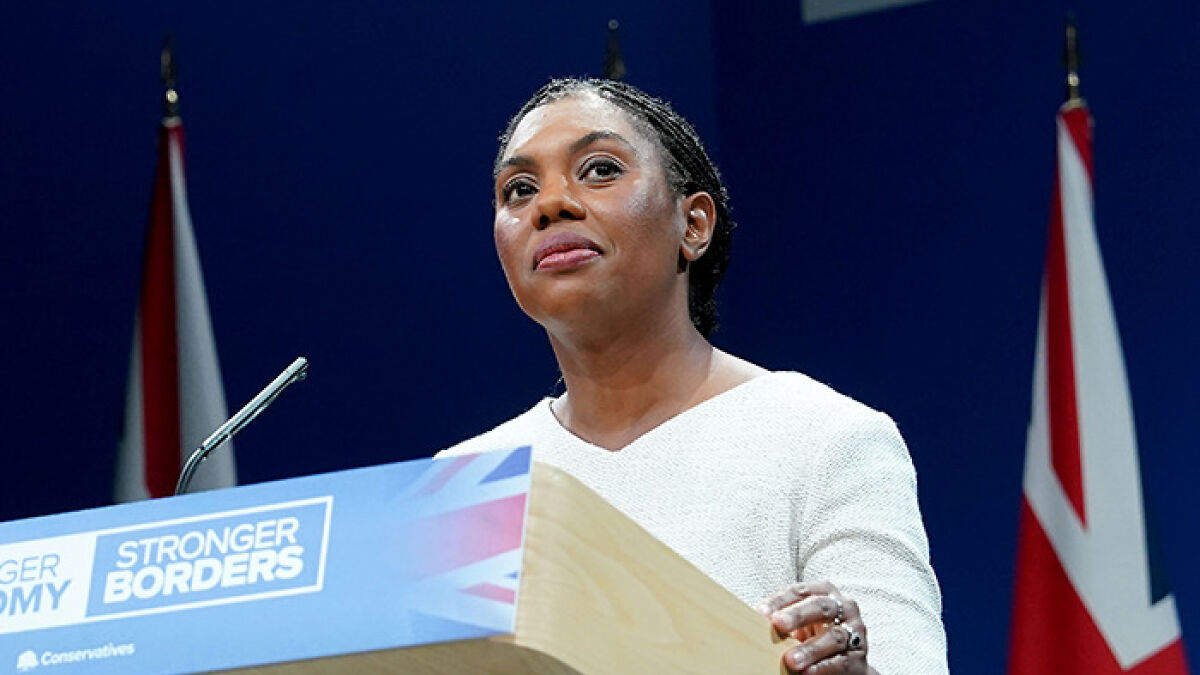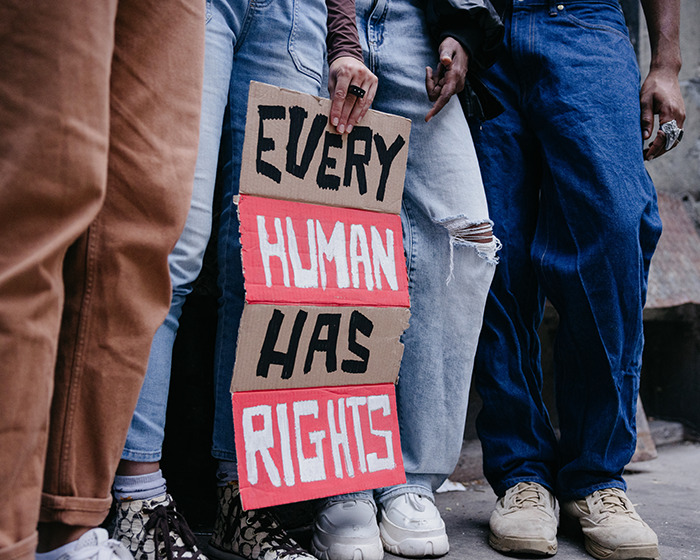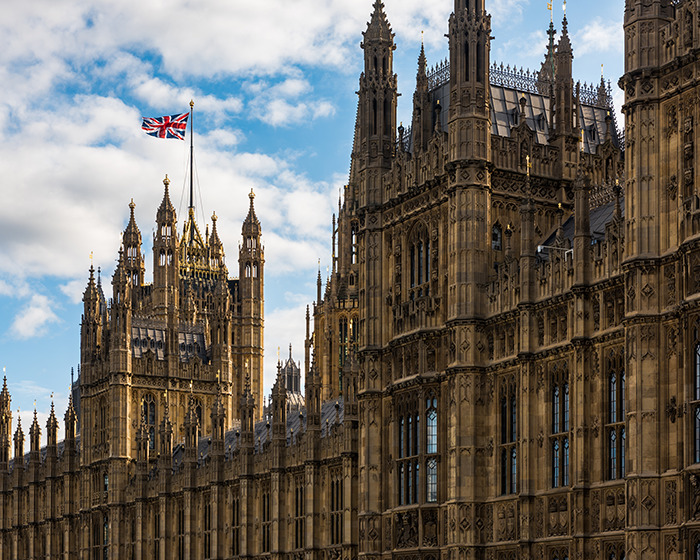
Opinion: UK Conservatives’ Push To Leave Key Human Rights Convention Is Morally Indefensible
Britain, long seen as the bedrock of liberal democracy in Europe, now faces a turning point.
At the ConservativeParty conference in Manchester this week, leader Kemi Badenoch confirmed what many in her party have been clamoring for: that a future Conservative government under her leadership would withdraw the UK from the European Convention on Human Rights (ECHR).
- Conservative leader Kemi Badenoch pledged to withdraw the UK from the European Convention on Human Rights (ECHR), a move once unthinkable but now possible.
- Exit from the ECHR threatens key rights in Britain, including protections for migrants, protesters, privacy, and fair trials, and could strain Northern Ireland’s peace agreement.
- Badenoch’s plan includes mandatory support for ECHR exit among Conservative candidates, and five tests focused on deportation, parliamentary sovereignty, and limiting legal challenges.
- Leaving the ECHR risks damaging UK's international reputation, and legal cooperation with Europe, and could embolden authoritarian governments elsewhere.
- The proposed withdrawal reflects a broader global trend undermining human rights, reinforcing exclusionary immigration policies, and weakening protections for marginalized groups.
It is a bold, controversial promise that cuts to the heart of which rights are protected, and who protects them.
Conservative Party leader Kemi Badenoch delivers her speech on the final day of her party’s conference in Manchester on October 8. Image credits: Ian Forsyth/Getty Images
Now, in a twist of history that feels almost Orwellian, that same country is flirting with walking away from it. Badenoch, one of the leading figures of the Conservative right, confirmed this week that a future Tory government could take Britain out of the ECHR altogether, which is a move once unthinkable and now increasingly possible.
It’s not just another headline in Westminster’s endless culture war cycle. It’s a question of who gets to have rights at all, and who decides when those rights apply. With rhetoric that frames international law as foreign meddling and refugees as a threat, Britain seems to be edging closer to the authoritarianism it once vowed to fight.
Leaving the ECHR wouldn’t only rewrite Britain’s legal landscape—it would send shockwaves far beyond its shores. From protest rights to refugee protections, privacy, and fair trials, the very fabric of what human rights mean in Europe and beyond could begin to unravel.
Protesters demanding closure of all migrant hotels during a demonstration in Norwich on August 24. Image credits: Martin Pope/Getty Images
What’s changing, and why now?
The ECHR, founded in 1950, underpins much of the UK’s human rights law. Through it, citizens have access to rights such as free expression, privacy, fair trials, and the ability to challenge government decisions that threaten those rights.
The UK’s Human Rights Act incorporates many ECHR protections into national law. Withdrawal would mean severing a central thread in that framework.
Badenoch has laid out several drivers behind the proposal: Controlling borders, simplifying deportations, curbing what she describes as the misuse of human rights law to prevent government action, and restoring parliamentary sovereignty over courts.
As she argued at the conference, “If you cannot deliver the basics … because of a convention which is out of your control, then you should leave.”
She has also introduced “five tests” that her party wants any ECHR exit to pass. These include whether the government can deport foreign criminals or illegal migrants even if they have family in the UK, whether veterans can be shielded from prolonged legal challenges, whether British citizens can be prioritized for housing and public services, whether Parliament can override court decisions that stymie infrastructure projects or protest regulation, and whether legal challenges delaying major projects on environmental or human rights grounds can be limited.
Further, Badenoch has made backing an exit from the ECHR a mandatory test for anyone running as a Conservative candidate. If a prospective candidate does not support leaving, they may be barred.
Migrants depart by boat from Petit-Fort-Philippe Beach in France and head towards the UK. Image credits: Joanna Chichelnitzky/Anadolu/Getty Images
What could be on the chopping block?
The ECHR exit isn’t just political theater. It threatens real rights for many, often vulnerable, people.
Here are some of the key areas of concern:
One of Badenoch’s stated justifications is that the ECHR currently blocks the deportation of people she considers foreign criminals or illegal migrants, especially when they use the right to family life (Article 8) to challenge removal.
An exit could make it far easier for the government to remove people with fewer legal obstacles. Critics warn this could lead to violations of international obligations, especially under treaties like the Refugee Convention.
The European Convention on Human Rights, founded in 1950, underpins much of the UK’s Human Rights Act. Image credits: LeoPatrizi/Getty Images
Laws governing protest, public dissent, privacy (particularly in cases of surveillance and family life), and press freedoms typically rest on ECHR protections.
Courts have used ECHR articles to limit state overreach. Withdrawal would leave these protections more exposed to shifting political winds, where definitions of ‘public order’ or ‘national security’ become more elastic. Or in this case, aesthetic.
A key theme in Badenoch’s rhetoric is that the ECHR and the courts more broadly are “intruding” on decisions that should be in Parliament’s domain. Removing the convention could shift greater power to the executive branch, reducing avenues for individuals or civil society to challenge government wrongdoing.
Perhaps one of the most legally and politically fraught areas is what this would mean for Northern Ireland. The Good Friday Agreement of 1998 includes commitments to human rights protections rooted in the ECHR.
Any attempt to leave may strain that agreement and reopen old wounds, especially among communities deeply invested in the peace process.
Risks, pushback, and practical challenges
Making the promise is one thing. Executing it is another. And it’s fraught with political, legal, and diplomatic pitfalls. In international reputation and treaties, leaving the ECHR could damage the UK’s standing internationally.
Kemi Badenoch and her husband Hamish Badenoch at the Conservative Party conference in Manchester. Image credits: Christopher Furlong/Getty Images
Legal cooperation with Europe on issues such as extraditions, policing, and intelligence-sharing might suffer. Other countries may view Britain as less reliable in upholding its treaty obligations.
The legal complexity is that the ECHR is deeply integrated into UK law. Repealing the Human Rights Act or stripping out ECHR protections would require significant legislative work. Also, even without ECHR membership, some obligations may remain under UK law or other international treaties. Implementation will likely face legal challenges.
Critics, including former Conservative figures, warn that this policy could backfire: It might alienate centrist voters, amplify fears of authoritarian drift, and be seen as copying Reform UK’s hardline positions rather than offering a coherent alternative. It risks reaching too far in pursuit of a culture-war agenda.
Perhaps most importantly, for many individuals, including migrants, minorities, protesters, and ordinary citizens, this change is more than abstract. It could mean a loss of the protections they currently depend on for justice, safety, and dignity. And given the vagueness in some pledges (for example, where deportees would go, how ‘safety’ is judged), there are fears of arbitrary or unfair treatment.
Global and local echoes
Britain’s legal experiment would hardly be isolated. Across the world, similar claims are being made: That international human rights norms are outdated, that local sovereignty must trump supranational courts, and that immigration and security concerns override minority rights. An exit by a major country like the UK lends legitimacy to those moves.
Within Europe, it could give authoritarian or semi-authoritarian governments an excuse or quote-unquote precedent, “Even Britain, purveyor of human rights, pulled out.”
The ripple effects could weaken mechanisms meant to protect human dignity, especially for marginalized populations, not just in the UK, but elsewhere, as we observe what becomes acceptable.
Domestically, this echoes fears already too familiar: That the rights of protesters, of those without strong political power, and of those reliant on judicial oversight, are being eroded under the guise of ‘strong government’ or ‘national security.’
That same imperial logic underpins the UK’s approach to refugees and migration: A system built to control who gets to belong, and who remains perpetually ‘other.’
The Rwanda deportation plan, the hostility toward asylum seekers crossing the Channel, the language of ‘invasion’ and ‘illegals’ all stem from the idea that Britain has the right to determine whose humanity counts. Remember Prithi Patel?
Leaving the ECHR would remove one of the last external checks on such abuses, allowing the state to operate as both judge and executioner over the lives of displaced people.
In doing so, Britain would not only harden its borders but also reaffirm the racial hierarchies that empire once enforced by force of arms.
The Houses of Parliament in London, UK. Image credits: Tim Grist Photography/Getty Images
Israel’s fingerprints are also visible along Europe’s borders. Through its arms and surveillance industries, Israel has supplied much of the technology now used to police the Mediterranean, from drones and radar systems to biometric databases.
The very tools first tested on Palestinians are now deployed to stop black and brown migrants from Africa from reaching European shores.
In effect, Israel’s export of occupation technologies feeds the fortress Europe has built. One where deterrence often means death at sea.
From the frying pan into the fire
This isn’t purely about law; it’s about values. On one level, politicians deciding that certain treaties “get in the way” of what they think should be done is part of democratic accountability. But the ECHR was designed precisely to prevent majoritarian governments from overriding basic protections, especially those for minorities or unpopular people.
Migrants wave and give peace signs from a window of the Barbican Thistle Hotel amid anti-immigration protests in London in early August. Image credits: Dan Kitwood/Getty Images
Will the UK leave the ECHR? Badenoch has committed to it if her tests show the convention is obstructing her government’s agenda, and she’s already set her party up so that only candidates supporting withdrawal can stand.
Whether she achieves this will depend on electoral success, legal feasibility, public reaction, and international response.
Even if she doesn’t, the policy shift reshapes the terrain. It forces every debate about rights in the UK to now come with the question: Is this something the government will pull out of if it helps?
It raises intensifying scrutiny on what rights are worth preserving, who gets to challenge power, and how much trust citizens have in institutions.
Britain may be one treaty away from reimagining what rights look like. For many, that reimagining will feel like walking backwards.
Poll Question
Thanks! Check out the results:
1k+views
Share on FacebookShe seems intent on pulling the ladder up after her. She's only slightly less disgusting than Cruella Braverman.
Human rights - who needs them? Sorry, but we ALL do. Don't follow the immoral path of the MAGAt-led US idiots. UK, we believe in you!
She seems intent on pulling the ladder up after her. She's only slightly less disgusting than Cruella Braverman.
Human rights - who needs them? Sorry, but we ALL do. Don't follow the immoral path of the MAGAt-led US idiots. UK, we believe in you!












17
4